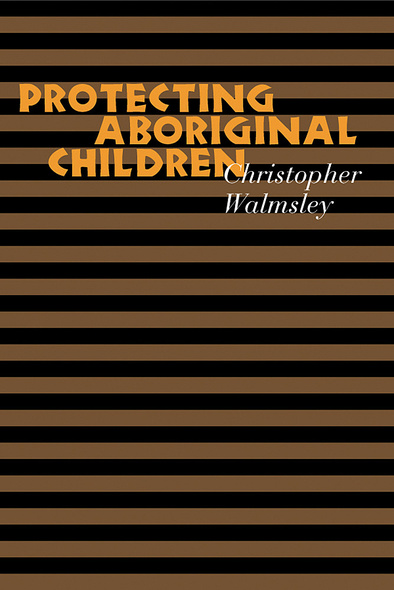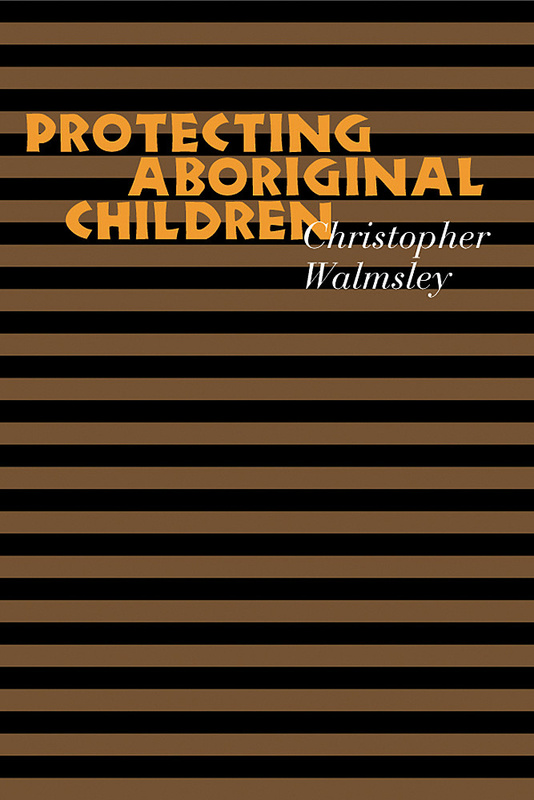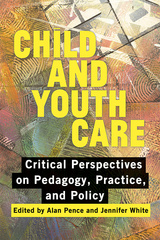
Beginning in the 1960s, large numbers of Aboriginal children in Canada were removed from their families by provincial child welfare services. Known as the “sixties scoop,” the practice caused great harm to individuals and families and devastated communities. Today Aboriginal children comprise roughly half the children in state care, but since the 1980s, bands and tribal councils have developed unique community-based child welfare services to better protect Aboriginal children.
Protecting Aboriginal Children explores contemporary approaches to the protection of Aboriginal children through interviews with practising social workers employed at Aboriginal child welfare organizations and the child protection service in British Columbia. It places current practice in a sociohistorical context, describes emerging practice in decolonizing communities, and identifies the effects of political and media controversy on social workers.
This is the first book to document emerging practice in Aboriginal communities and describe child protection practice simultaneously from the point of view of the Aboriginal and non-Aboriginal social worker.
Those working in child welfare or contemplating a career in child protection will find the book an insightful analysis of current practice thinking and experience. Aboriginal peoples with an interest in health and human services, as well as social work students, child welfare workers and administrators, and health, education, and human service professionals will find it particularly useful.
Those working in child welfare or contemplating a career in child protection will find this book an insightful analysis of current practice thinking and experience. Aboriginal peoples with an interest in health and human services, as well as social work students, child welfare workers and administrators, and health, education, and human service professionals will find it particularly useful.
This little volume fares quite well as a single message book, that message being that historically, child and family practice in Aboriginal communities in British Columbia has been a dismal failure.
Trial lawyers specializing in aboriginal law will find this text to be the first of its kind describing child protection proceedings from the standpoint of Aboriginal and non-Aboriginal social workers. The 1960s practice of mass removal of Native children from their homes resulted in roughly half of all children in care being from Aboriginal families. The author sets out creative and humane alternatives to the past processes.
For far too long Aboriginal children have not received the justice and respect that is owed to them, and Protecting Aboriginal Children will go a long way towards rectifying this situation. Dr. Christopher Walmsley has approached the subject of social work practice in the Aboriginal community by paying the utmost respect to the historical perspectives of Aboriginal peoples. He is aware of past social injustices and looks at how justice and respect can be intertwined with the practice of social work. This book is one more step towards gaining a better understanding of a vast array of issues that are being dealt with in the Aboriginal community.
Protecting Aboriginal Children is a timely and important book. Based on original research, it examines child protection issues and their impact upon First Nations children, their families and practitioners. Although it examines the painful legacy of a long and shameful period in Canadian social work history ... its focus is on how to improve practice in child welfare by recognizing and celebrating difference and ... working in an anti-oppressive manner with First Nations peoples. This book will contribute to the healing processes that will enable practitioners to engage with indigenous children and their families ... in a holistic and respectful manner.
Foreword / ix
Acknowledgments / xiii
1 Introduction
2 The Historical Context
3 The British Columbia Context
4 A Description of Practice
5 The Sociopolitical Practice Context
6 Organizational Context of Practice
7 The Community Context
8 Visions, Explanations, and Knowledge for Practice
9 Choices for Change
10 Social Representations of Child Protection Practice
Appendices
1 Note on the Theoretical Framework
2 Note on Methodology
References
Index





